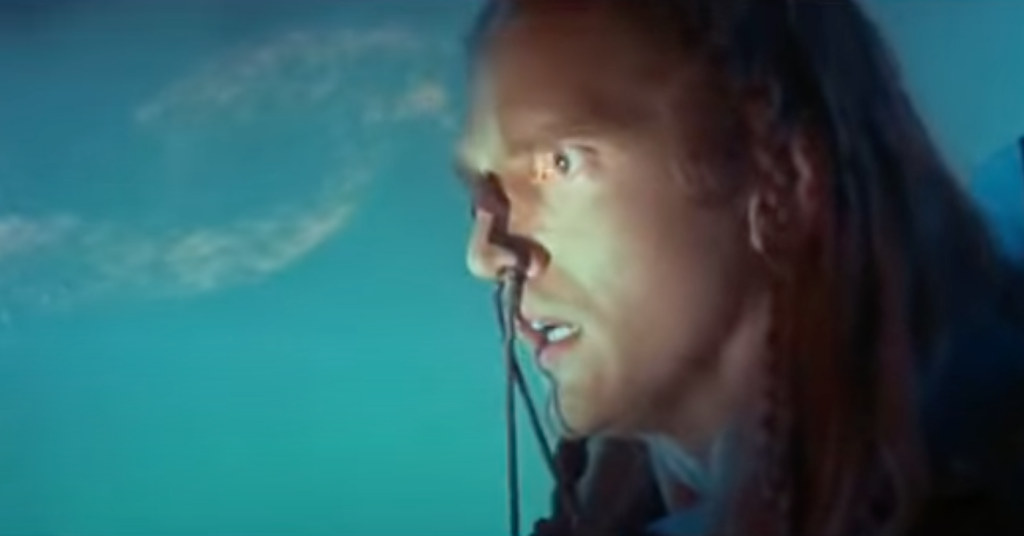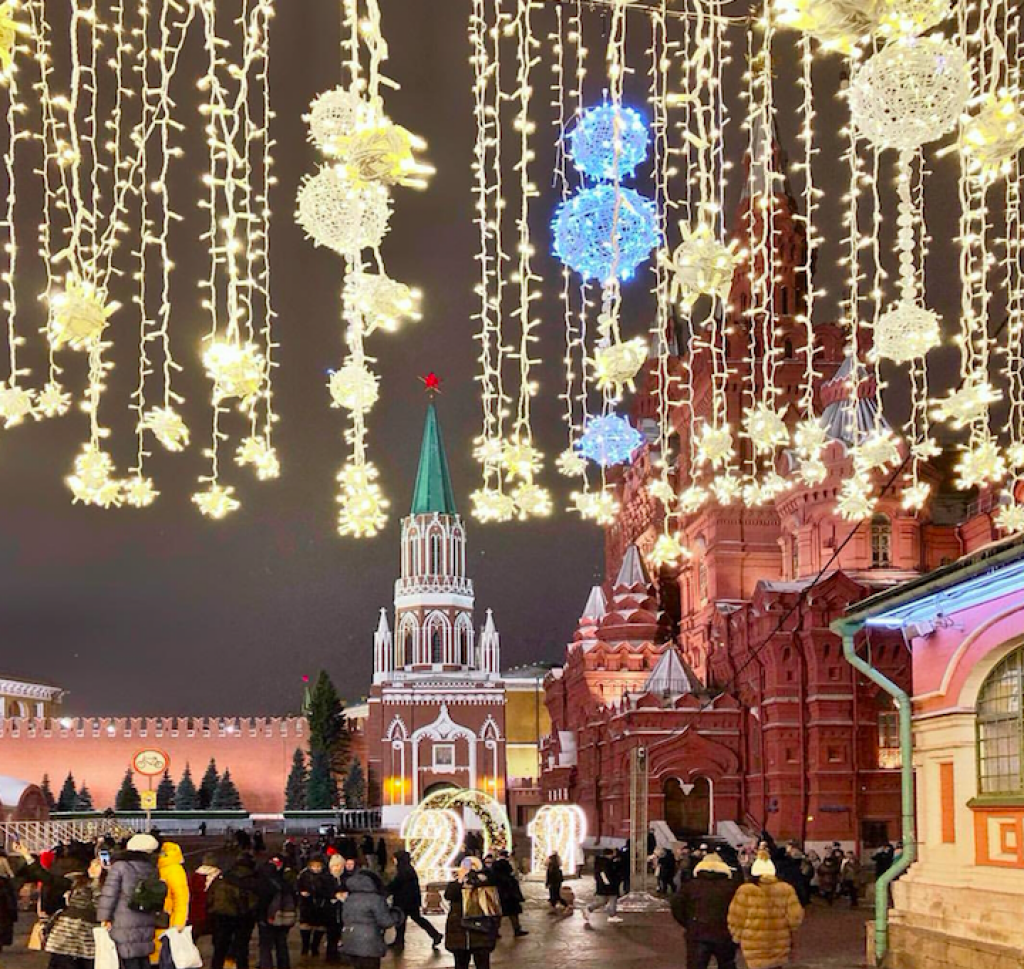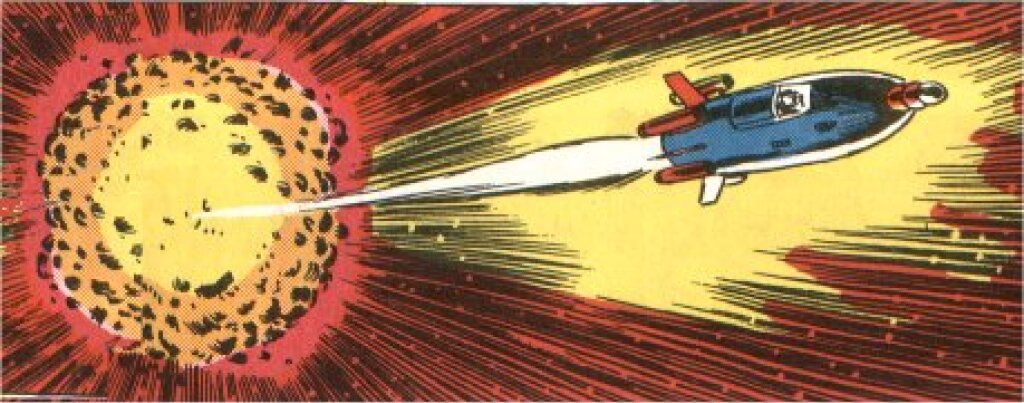Above: A still from the "education machine" sequence in Battlefield Earth (2000). Source.
Sean Eriksen is a Master's candidate in Russia, Eastern Europe and Central Asia Studies at the Davis Center for Russian and Eurasian Studies at Harvard University.
The debate about the role of ideology in Putin’s Russia has been granted new life by one of the most high-profile Western commentators on Russia, academic and former Ambassador Michael McFaul. He has made the compelling case that, irrespective of Putin’s professed "pragmatism," ideology plays a significant role in contemporary Russian politics and foreign policy, and that the concepts are to some extent inseparable. Others have gone further. Historian Timothy Snyder has long portrayed the Russian president as a disciple of mystic, quasi-fascist philosopher Ivan Ilyin, and there is no shortage of academics and journalists using occasional references to such figures as a springboard into this intellectual quagmire, trying to infer what Putin “really” thinks.
You can hardly blame them for attributing a certain dogmatism to the Russian president. Especially since his “conservative shift” in 2012, he has been zealously homophobic, revanchist, repressive, and prone to quoting right-wing philosophers. He continues to endorse propagandist Vladislav Surkov’s pseudo-ideological description of Russia as a “sovereign democracy.” Largely absent from this conversation, however, is Putin’s explicit approach to the question of ideology in Russia, which is more interesting than the term "pragmatism" might imply.
Although Putin laments the excesses of communism, he identifies two problems that ideology or otherwise a “national idea,” as a pragmatic tool, could theoretically solve: 1) a lack of moral clarity and purpose and 2) “the nationalities question.” Since resuming the presidency in 2012, Putin has engaged in a project to solve these problems by a state-directed cultural policy that is absolutely not, under any circumstances, to be called “ideological.”
Moral clarity and purpose
When Putin’s Soviet forefathers were feeling their most totalitarian, they embarked on a project to redesign humanity in the shape of a “New Soviet Person,” whose identity and value system would be ideal for communist society. In 1961, this project culminated in the “Moral Code of the Builder of Communism,” a kind of communist Ten Commandments that Putin and others identify as a source of moral clarity and purpose within the USSR.
Putin has long thought that the absence of such a moral code could be a problem. During his first months in office, he described post-war West German Chancellor Ludwig Erhard as one of the main historical figures of interest to him personally. According to Putin, Erhard was “a very pragmatic person” who helped build up postwar Germany by “[defining] the new moral values in society, an “especially important" task "after the collapse of Nazi ideology.” As I will show below, since 2012, Putin has humbly taken on this important historical role in post-Soviet Russia.
The Nationalities Question
The fact that the Russian Empire and Soviet Union contained many “nations” under a single government threatened the Kremlin as nationalism became the world’s main organizing principle for statehood. The Soviets had the additional problem of being anti-imperialist, but communism’s internationalist focus on class liberation rather than nationality gave them a ready-made justification to maintain and expand their territory.
With massively reduced borders, the Russian Federation doesn’t have as large a nationalities "problem" as the early Soviet Union. But it also lacks the solution that ideology offers, now that its post-Soviet constitution outright forbids any kind of official ideology. As Chechens engaged in a struggle for independence throughout the 1990s, there was concern that the Russian Federation would unravel if other nationalities followed suit. When President Yeltsin was on the verge of losing the First Chechen War in 1996, he called for experts and the general public to come up with a new national idea capable of uniting the country. They couldn’t.
Three years later, Vladimir Putin would return Chechnya to Russia, but only through force, political bargaining, and concessions of autonomy rather than any appeal to a common Russian identity. Today, such a secession movement is unlikely, but the nationalities question is never far from Putin’s mind.
Culture — Putin’s Alternative
Putin, from his first pre-presidential manifesto through to today, has insisted that a national idea should emerge organically from the people rather than be imposed by the state. Before returning to the presidency in 2012, he wrote a sequel manifesto that declared the nationality question “fundamental.”
What followed over the subsequent years was a deliberate project to establish an all-Russian national identity. Putin has famously declared that “patriotism” is Russia’s only national idea, but this answer is deceptively simple. He asserts that Russia is a civilization-state, not a nation-state, and so the fact that it contains many nationalities is not a problem. Per Putin, a multi-national Russia is actually better equipped to deal with multiculturalism than Western countries whose multiculturalism is the result of immigration, and is thus “less organic.”
As a civilization-building people, ethnic Russians form the core of Putin's imagined version of Russia, uniting the country through their ethnic Russian culture and especially the Russian language. The code of Orthodox Christianity will replace the Code of the Builder of Communism — which, according to Putin, was in any case “a pathetic copy of the Bible.” The government must take an active role in promoting Russian culture and traditional Orthodox values, especially among young people, whose moral bankruptcy will be cured and whose cultural achievements will contribute to an all-Russian civic identity over time.
Some features of this project include the designation of 2014 as the “Year of Culture.” In May of that year, Putin outlined “The Foundations of State Cultural Policy” based on an understanding of “culture as a tool for transmitting to new generations a set of moral and ethical values that form the basis of national identity.” Meanwhile, excessive ethnic Russian nationalism was offset by a harsh state crackdown on ethnic nationalist groups and the creation of an “Award for Contributing to Strengthening Russia’s Unity,” recognizing activities that improve “the civil consciousness and spiritual unity of the multiethnic people of Russia.”
Throughout these developments, Putin dogmatically insisted that, although these values are “the foundation of our entire life,” they do not amount to ideology, a word he associates with communist atrocities. Others disagree. Bishop Tikhon, rumored to be Putin’s personal confessor, praised the cultural policy for bringing the country out of “a prolonged state of ideological amorphousness.” Communist Party leader Gennady Zyuganov echoed similar sentiments.
As the debate about whether Putin’s Russia is "ideological" rages on, it can feel hard to pick a side. Though authoritarian and violent, Putin’s regime has not yet descended into anything close to the abuses of the worst Soviet days. The rejection of ideology in Putin’s vision of Russia might offer at least a partial explanation for the regime's relative restraint: a “pragmatic” approach cannot justify the slaughter, starvation, or enslavement of millions as easily as communism did under Stalin.
But the two pragmatic uses of ideology outlined here underscore McFaul’s point that ideology and pragmatism are sometimes inseparable. Wherever pragmatism ends and ideology begins, Putin’s political trajectory is moving in the direction of a greater emphasis on values, ideas, identity, and emotion, with a proportional increase in repression, as the persecution of opposition leader Aleksei Navalny shows. With up to fifteen years left in power, Putin has the time and motivation to get creative — and produce even worse outcomes than those the world has seen so far.



